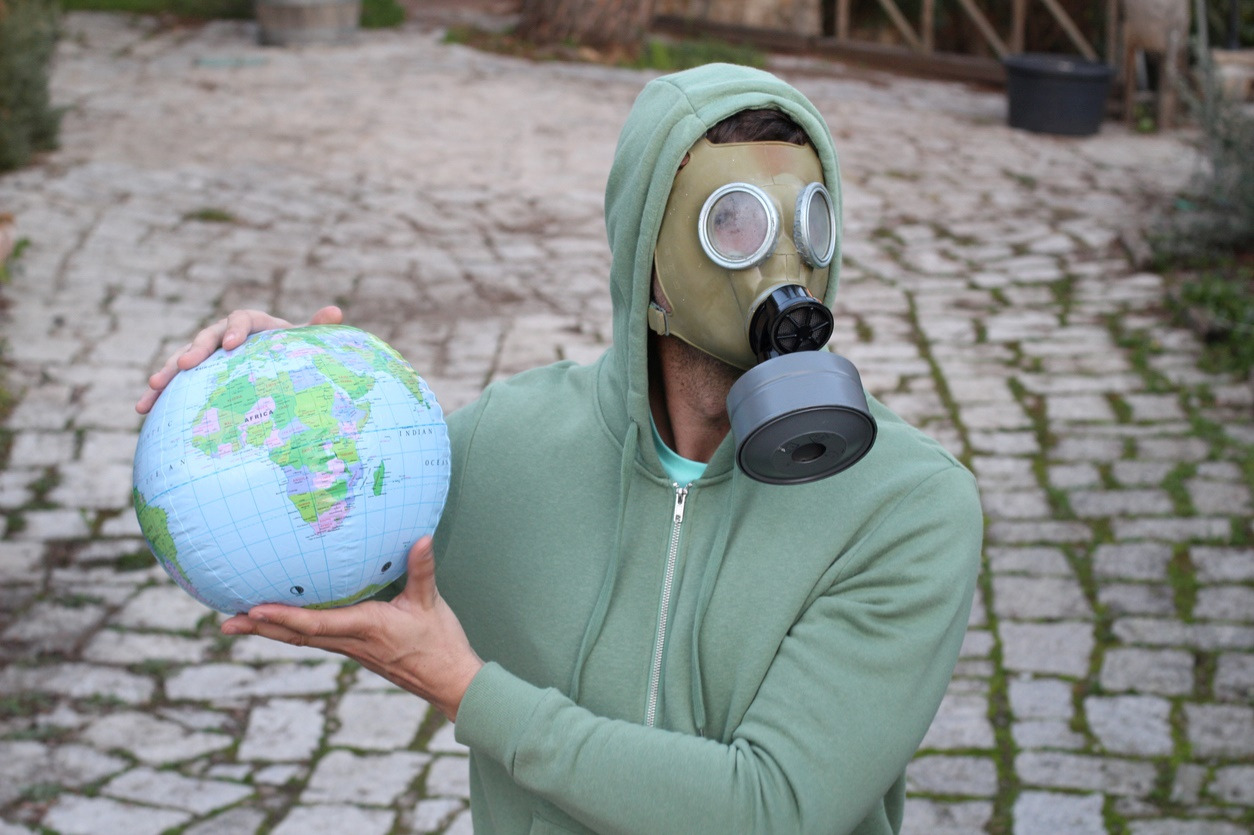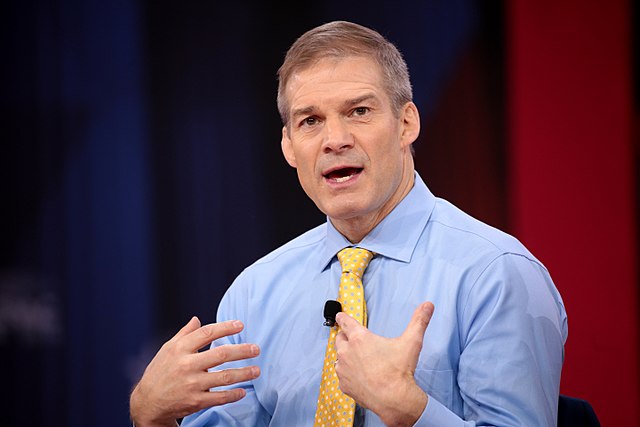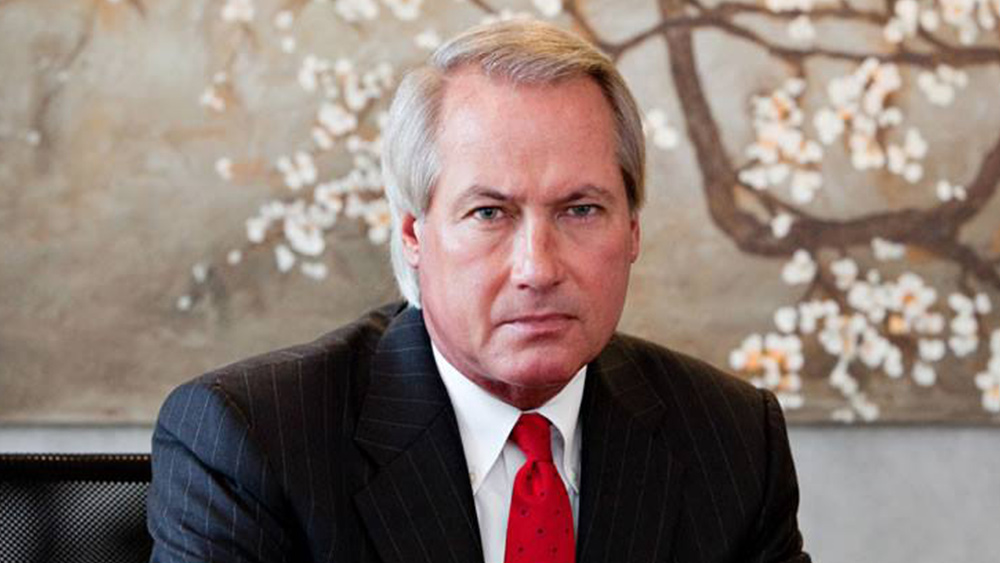 Parler
Parler Gab
Gab
- "Climate science should be less political, while climate policies should be more scientific," states the declaration signed by the 1,609 scientists, including Nobel laureates John F. Clauser from the US and Ivar Giaever from Norway/US.
- "Climate policy relies on inadequate models Climate models have many shortcomings and are not remotely plausible as policy tools. They... ignore the fact that enriching the atmosphere with CO2 is beneficial... There is no statistical evidence that global warming is intensifying hurricanes, floods, droughts and suchlike natural disasters, or making them more frequent." — 1,609 scientists, There is no Climate Emergency, clintel.org.
- "I was taught that you tell the whole truth [as a scientist]...." Koonin said. He noted as well the immorality of asking the developing world to cut down emissions, when so many do not even have access to electricity and the immorality of scaring the younger generations.... — Steven E. Koonin, former Undersecretary for Science at the U.S. Department of Energy; current professor at New York University, fellow at the Hoover Institution, and author of Unsettled: What Climate Science Tells Us, What It Doesn't, and Why It Matters. — Hoover Institution, August 15, 2023.
- Of course it would be helpful to research what can be done to relieve the problems brought about by man, such as the "hole in the ozone layer," which is now closing, but climate change is not an apocalyptic emergency and needs to be attended to without bringing devastation to the hundreds of millions of people already in extreme poverty.
- The Biden administration, however, appears not to be concerned about the widespread poverty and massive starvation that will be caused by the unavailability of cheap and reliable energy in underdeveloped countries, or the inflation caused by the skyrocketing prices that are crushing Americans "barely able to afford one meal a day".
- These are man-made problems, created by importing expensive (nearing $100 a barrel again) -- often dirtier -- oil from adversaries of the United States, such as Russia and Venezuela, instead of extracting it far less expensively at home.
- The Biden administration also does not seem concerned that it is killing wildlife, sea life and the fishing industry by installing offshore wind turbines along the Atlantic seaboard, or that mandating electric vehicles will throw virtually the entire auto maintenance industry out of work (EVs do not need routine maintenance), or that lithium batteries not only explode but cost thousands of dollars to replace. The administration even wants military equipment, such as tanks, to be electric, as if there were charging stations in the middle of foreign deserts in the event of a conflict. Moreover, according to NBC News, volcanoes, unimpressed with executive orders, "Dwarf Humans for CO2 Emissions."
- The Biden administration does not even bother to act on its own climate findings: In March, the White House released a report about the impact of climate change on the US economy. "Its findings undermine any claims of an ongoing climate crisis or imminent catastrophe" Koonin wrote in July. "The report's authors should be commended for honestly delivering likely unwelcome messages.... Exaggerating the magnitude, urgency and certainty of the climate threat encourages ill-considered policies that could be more disruptive and expensive than any change in the climate itself." — Steven E. Koonin, Wall Street Journal, July 6, 2023.
- Never mind that much of climate change is apparently caused by sun flares, about which we can do nothing, and which, unlike commercial industries, do not offer grants; or that major wildfires are, ironically, exacerbated by "environmentalists" for refusing to let tinderbox brush be cleared lest the creatures there be disturbed other than by a wildfire.
- Climate expert Bjørn Lomborg suggests that the trillions of dollars needed to address climate change might be put to better use:
- "This isn't an argument to do nothing but just to be smarter. To ensure we can transition from fossil fuels, we need to ramp up research and development to innovate down the price of green energy. We should invest across all options including fusion, fission, storage, biofuel and other sources."
- "Only when green energy is cheaper than fossil fuels will the world be able and willing to make the transition. Otherwise, today's energy prices are just a taste of things to come."

"Scientists should openly address uncertainties and exaggerations in their predictions of global warming, while politicians should dispassionately count the real costs as well as the imagined benefits of their policy measures... "The geological archive reveals that Earth's climate has varied as long as the planet has existed, with natural cold and warm phases. The Little Ice Age ended as recently as 1850. Therefore, it is no surprise that we now are experiencing a period of warming. "Warming is far slower than predicted... "The gap between the real world and the modeled world tells us that we are far from understanding climate change. "Climate policy relies on inadequate models Climate models have many shortcomings and are not remotely plausible as policy tools. They do not only exaggerate the effect of greenhouse gases, they also ignore the fact that enriching the atmosphere with CO2 is beneficial... "Global warming has not increased natural disasters There is no statistical evidence that global warming is intensifying hurricanes, floods, droughts and suchlike natural disasters, or making them more frequent. However, there is ample evidence that CO2 mitigation measures are as damaging as they are costly. "Climate policy must respect scientific and economic realities There is no climate emergency. Therefore, there is no cause for panic and alarm. We strongly oppose the harmful and unrealistic net-zero CO2 policy proposed for 2050. Go for adaptation instead of mitigation; adaptation works whatever the causes are."Professor Steven Koonin, former Undersecretary for Science at the U.S. Department of Energy under the Obama administration, current professor at New York University, and fellow at the Hoover Institution, authored the 2021 bestseller, Unsettled: What Climate Science Tells Us, What It Doesn't, and Why It Matters. In it, he states that what the largely unreadable (for laymen) and complicated science reports say on climate change is completely distorted by the time their contents are filtered through a long line of summary reports of the research by the media and the politicians.
"There are abundant opportunities to get things wrong – both accidentally and on purpose – as the information goes through filter after filter to be packaged for various audiences... It's not only the public that is ill-informed about what the science says about climate..."Koonin adds:
"Government and UN press releases and summaries do not accurately reflect the reports themselves... Distinguished climate experts (including report authors themselves) are embarrassed by some media portrayals of the science."In a recent interview, Koonin noted that his colleagues' reactions to his book had been that he should not be telling the public or the politicians the truth about climate change. "I was taught that you tell the whole truth [as a scientist]. And you let the politicians make the value judgments and the cost effectiveness trade-offs and so on," Koonin said. He noted as well the immorality of asking the developing world to cut down emissions when so many do not even have access to electricity, and the immorality of scaring the younger generations: 84% of American teenagers believing, as of January 2022, that if climate change is not addressed, "it will be too late for future generations, making some part of the planet unlivable." Of course it would be helpful to research what can be done to relieve the problems brought about by man, such as the "hole in the ozone layer," which is now closing, but climate change is not an apocalyptic emergency and needs to be attended to without bringing devastation to the hundreds of millions of people already in extreme poverty. The Biden administration, however, appears not to be concerned about the widespread poverty and massive starvation that will be caused by the unavailability of cheap and reliable energy in underdeveloped countries, or the inflation caused by the skyrocketing prices that are crushing Americans "barely able to afford one meal a day". These are man-made problems, created by importing expensive (nearing $100 a barrel again) -- often dirtier -- oil from adversaries of the United States, such as Russia and Venezuela, instead of extracting it far less expensively at home. The Biden administration also does not seem concerned that so long as China and India keep burning coal – the Chinese Communist Party is permitting two new coal-power plants a week, easily cancelling out whatever benefits the US might be providing, and reportedly exceeding "all developed nations combined" in carbon emissions. The Biden administration also does not seem concerned that it is killing wildlife, sea life and the fishing industry by installing offshore wind turbines along the Atlantic seaboard, or that mandating electric vehicles will throw virtually the entire auto maintenance industry out of work (EVs do not need routine maintenance), or that lithium batteries not only explode but cost thousands of dollars to replace. The administration even wants military equipment, such as tanks, to be electric, as if there were charging stations in the middle of foreign deserts in the event of a conflict. Moreover, according to NBC News, volcanoes, unimpressed with executive orders, "Dwarf Humans for CO2 Emissions." The Biden administration does not even bother to act on its own climate findings: In March, the White House released a report about the impact of climate change on the US economy. "Its findings undermine any claims of an ongoing climate crisis or imminent catastrophe" Koonin wrote in July.
"The report's authors should be commended for honestly delivering likely unwelcome messages, even if they didn't make a show of it. The rest of the Biden administration and its climate-activist allies should moderate their apocalyptic rhetoric and cancel the climate crisis accordingly. Exaggerating the magnitude, urgency and certainty of the climate threat encourages ill-considered policies that could be more disruptive and expensive than any change in the climate itself."But facts will not stop the Biden administration from forging ahead with its radical policies: "I don't think anybody can deny the impact of the climate crisis anymore," Biden, commenting on Hurricane Idalia, told reporters at the White House on August 30. "Just look around. Historic floods. I mean, historic floods. More intense droughts, extreme heat, significant wildfires have caused significant damage." Never mind that much of climate change is apparently caused by sun flares, about which we can do nothing, and which, unlike commercial industries, do not offer grants; or that major wildfires are, ironically, exacerbated by "environmentalists" for refusing to let tinderbox brush be cleared lest the creatures there be disturbed other than by a wildfire. Climate expert Bjørn Lomborg suggests that the trillions of dollars needed to address climate change might be put to better use:
"This isn't an argument to do nothing but just to be smarter. To ensure we can transition from fossil fuels, we need to ramp up research and development to innovate down the price of green energy. We should invest across all options including fusion, fission, storage, biofuel and other sources. "Only when green energy is cheaper than fossil fuels will the world be able and willing to make the transition. Otherwise, today's energy prices are just a taste of things to come."Read more at: GatestoneInstitute.org
Why are American hospitals treating wounded Ukrainian soldiers?
By Cassie B. // Share
Trump’s ex-lawyer denies he will testify against the former president
By Richard Brown // Share
Governments continue to obscure COVID-19 vaccine data amid rising concerns over excess deaths
By patricklewis // Share
Tech giant Microsoft backs EXTINCTION with its support of carbon capture programs
By ramontomeydw // Share
Germany to resume arms exports to Israel despite repeated ceasefire violations
By isabelle // Share










